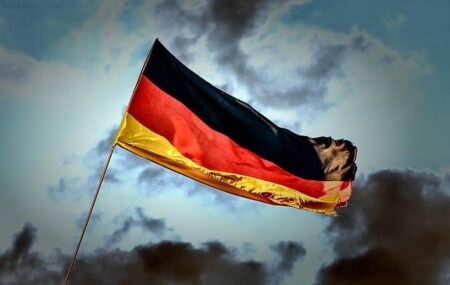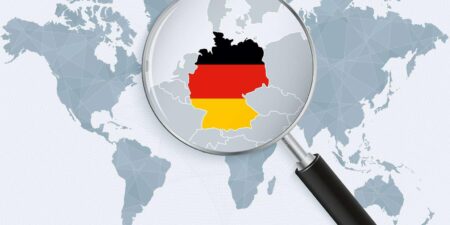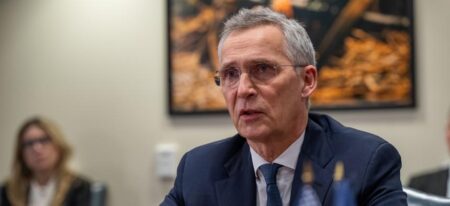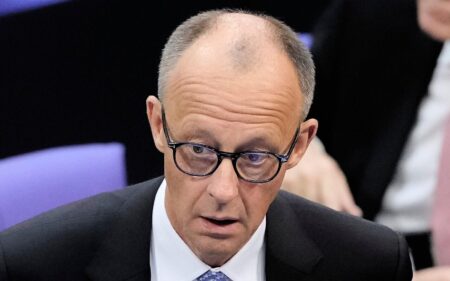Germany and France are caught in a fierce showdown over the U.S. arms purchase, unfolding amid a colossal €90B EU loan to Ukraine. This intense clash is igniting tensions within the bloc as allies wrestle with defense spending priorities and how best to back Ukraine in its relentless fight
Browsing: transatlantic relations
The King of Spain has raised a powerful warning about the growing danger of “dismantling” the vital transatlantic bond between Europe and the US, urging a renewed commitment to protect this indispensable geopolitical and economic alliance
Germany’s leader has acknowledged a “changing” dynamic with the U.S., highlighting how their diplomatic and economic ties are evolving to meet global challenges head-on. United, both nations are determined to reinvent their partnership and shape a stronger future together
UK Prime Minister Johnson will address Parliament to celebrate America’s 250th birthday, putting a spotlight on the enduring and powerful bond between the two nations, The Hill reports. This special event honors their shared history while looking forward to an inspiring future of collaboration
France boldly stakes its claim to reject U.S. demands, signaling a powerful shift in Europe’s diplomatic stance. This move highlights escalating tensions and a resolute drive for greater independence in transatlantic relations
Germany is rapidly accelerating its rearmament amid escalating security threats as the conflict in Ukraine deepens. At the same time, the U.S. urges Europe to bolster its defense commitments, highlighting shifting transatlantic responsibilities
Europe sharply criticized the US after Washington imposed new visa restrictions on several allies, citing concerns over ‘censorship.’ The move has sparked tensions amid ongoing transatlantic disputes, Reuters reports.
Germany is revolutionizing its defense strategy, dramatically increasing its reliance on U.S. military drones amid rising tensions across Europe. This daring move signals a decisive break from collective European defense efforts, highlighting the deepening alliance between Berlin and Washington
A recent Pew Research Center survey reveals a dramatic decline in German public support for the U.S.-Germany relationship, highlighting growing concerns over the political and economic hurdles confronting these longtime allies
Trump’s new security strategy boldly targets Europe for lagging on defense spending and calls for restoring stability through renewed engagement with Russia, signaling a dramatic shift in U.S. foreign policy priorities, The Washington Post reports
The UK is boldly redefining its foreign policy, striving to assert greater independence from the US amid shifting global dynamics. This move underscores London’s determination to expand its alliances and champion a unique strategic vision, experts at the Chicago Council on Global Affairs reveal
Germany’s Finance Minister Friedrich Merz has strongly rejected US attempts to influence European migration policies, emphasizing Europe’s determination to address migration challenges independently, Anadolu Ajansı reports
Germany is grappling with the unstoppable rise of US tech giants, sparking urgent demands for stronger digital sovereignty and a daring surge in homegrown innovation to secure its place in the fiercely competitive global tech landscape
Germany will continue paying local staff at US military bases even during the US government shutdown, officials confirmed, ensuring operations run smoothly without interruption. This commitment highlights Germany’s steadfast support for employees navigating funding uncertainties
At the UN General Assembly, Italian Prime Minister Giorgia Meloni passionately spotlighted Italy’s crucial role as a vibrant transatlantic bridge, reaffirming the nation’s unwavering commitment to deepening and strengthening the bond between Europe and the United States
Japan has deployed fighter jets to NATO bases throughout the US, Canada, and Europe, strengthening security alliances, advancing joint missions, and delivering a bold statement of resolve amid rising geopolitical tensions, the Atlantic Council reports
Photo gallery: On 09 June 2025, NATO Secretary General kicks off an impactful visit to the United Kingdom. Dive into unforgettable moments from high-stakes meetings with UK leaders and inspiring talks aimed at strengthening transatlantic security. Explore these exclusive snapshots now!
As US backing for NATO shows signs of faltering, France and the UK are intensifying their nuclear alliance, signaling a daring new chapter in European defense amid escalating geopolitical tensions
Murray took center stage on CNBC to dive into the crucial changes in UK and NATO defense budgets, revealing strategic moves designed to tackle emerging security threats, as emphasized by the Atlantic Council
In a breathtaking late Thursday night twist, Chancellor Merz made a dramatic U-turn on Donald Trump, unveiling a bold new vision for Germany’s political strategy. This surprising move caught allies off guard and marked a pivotal moment in transatlantic relations


















